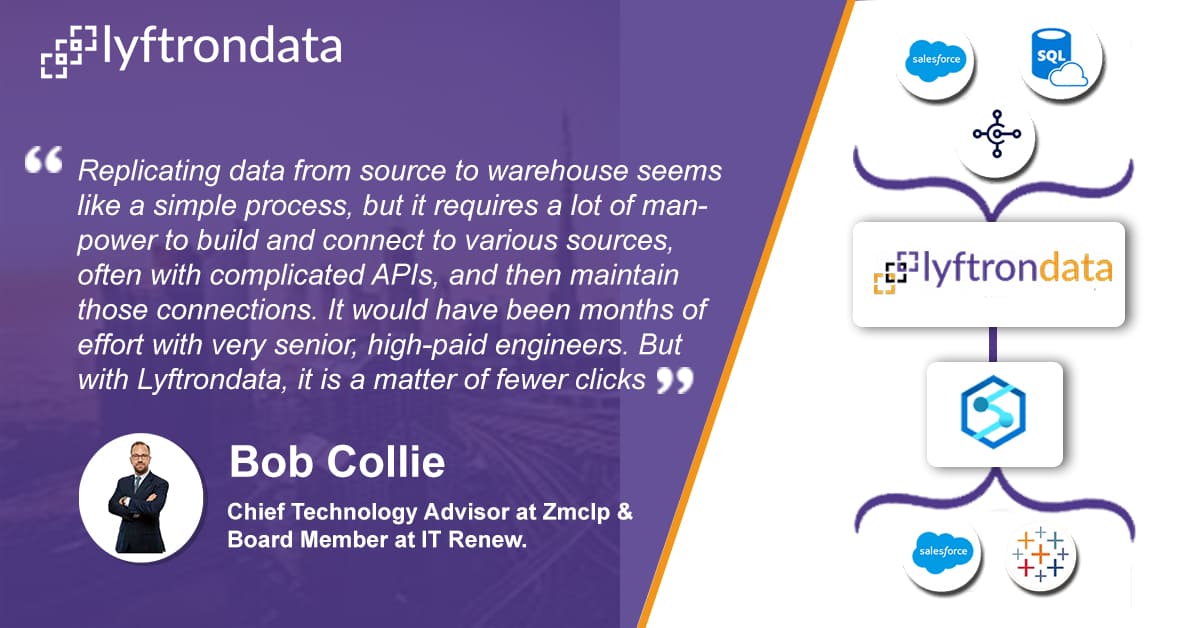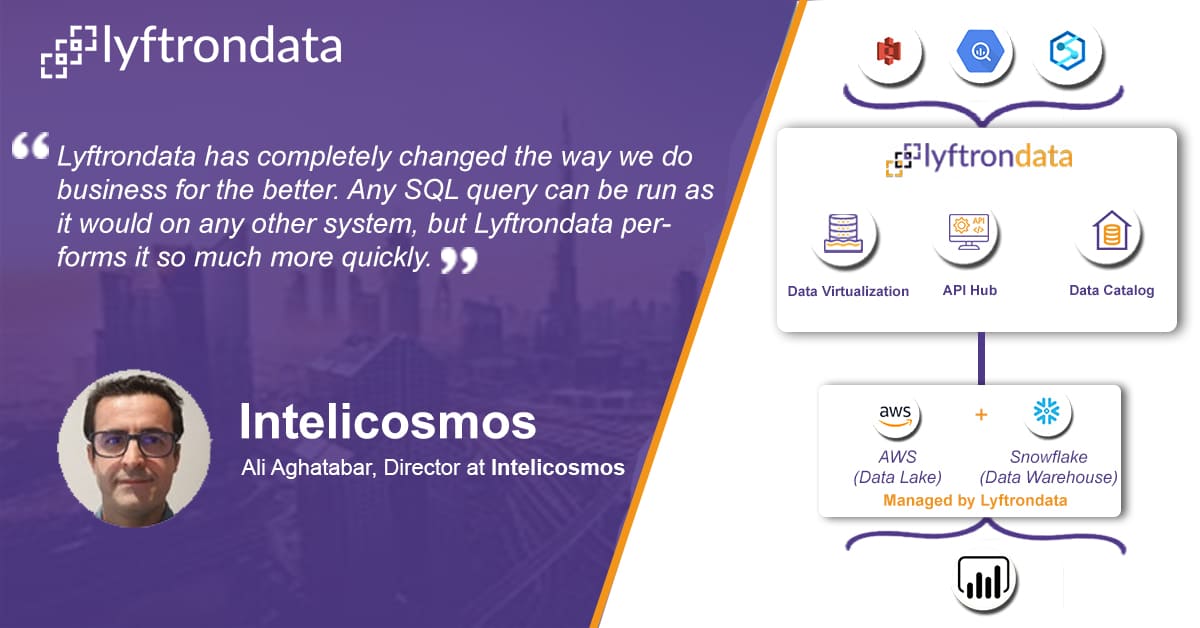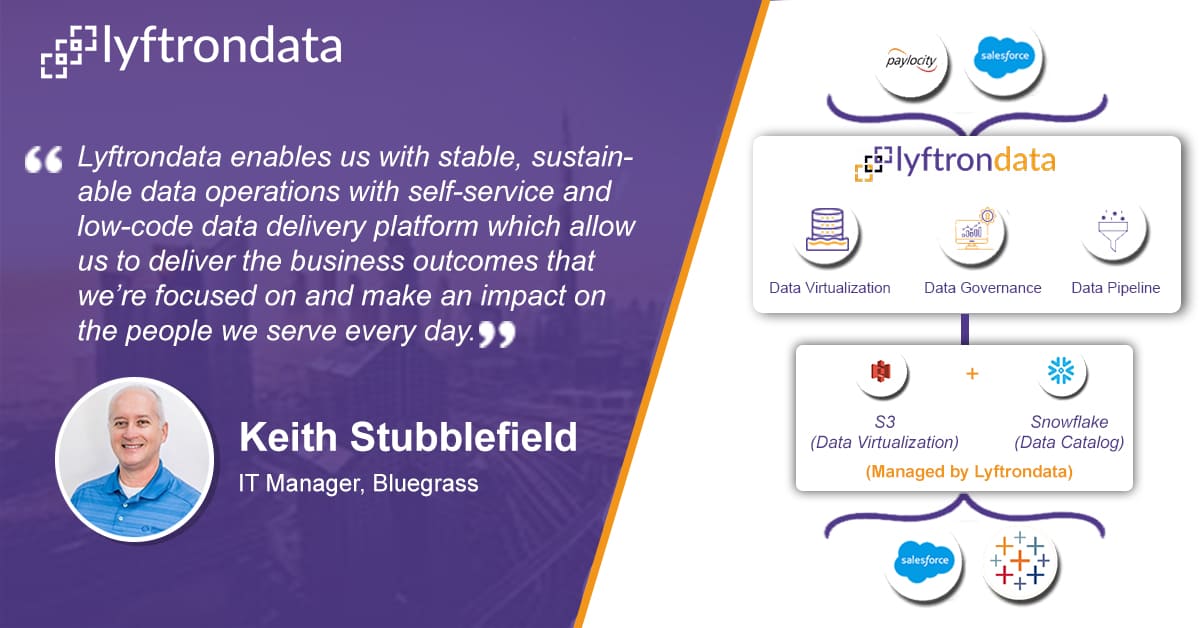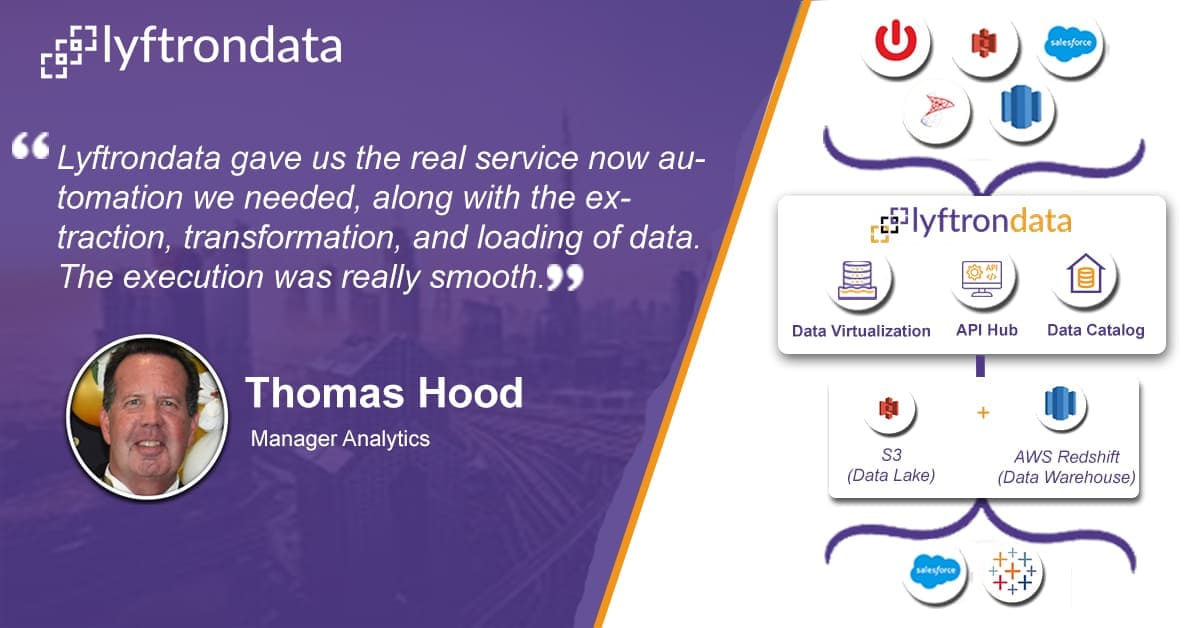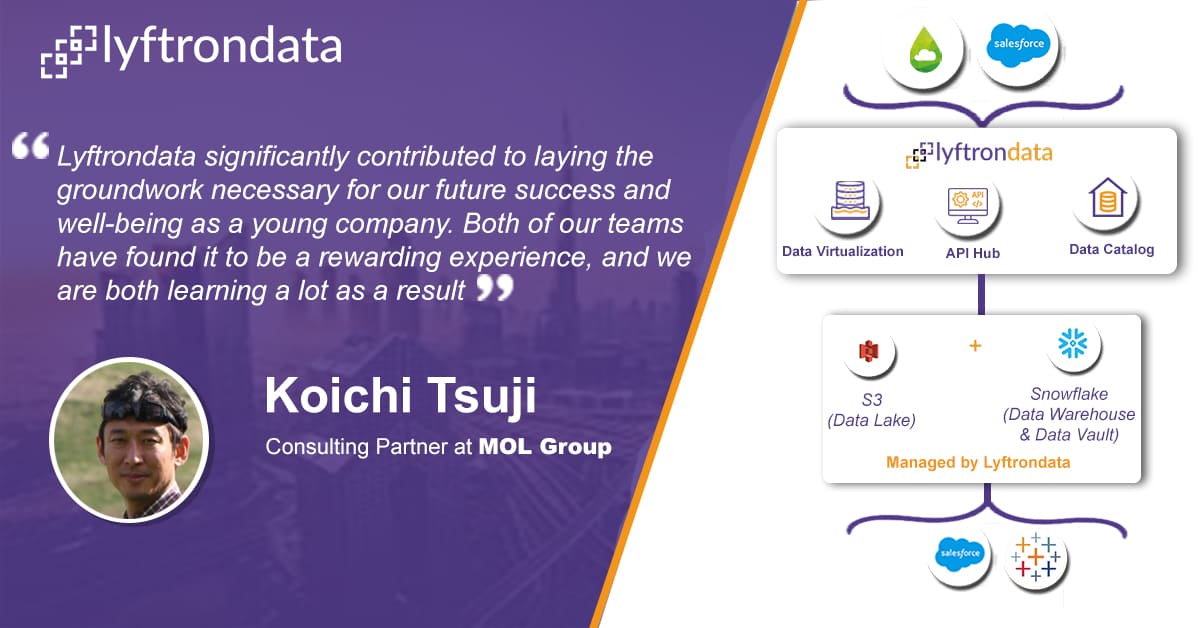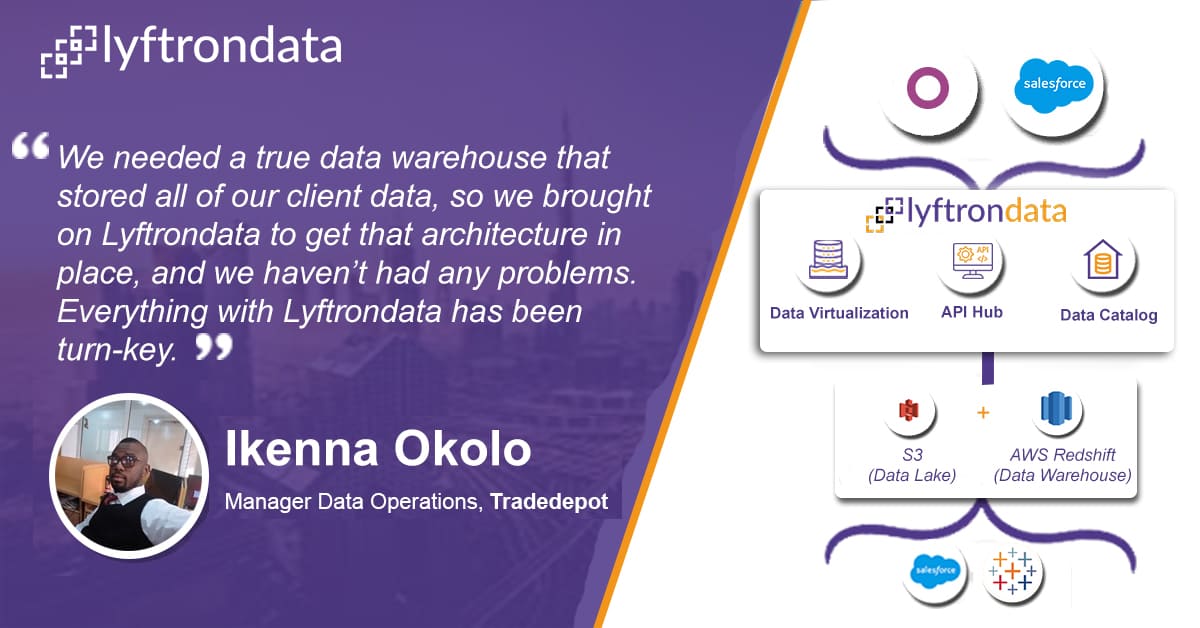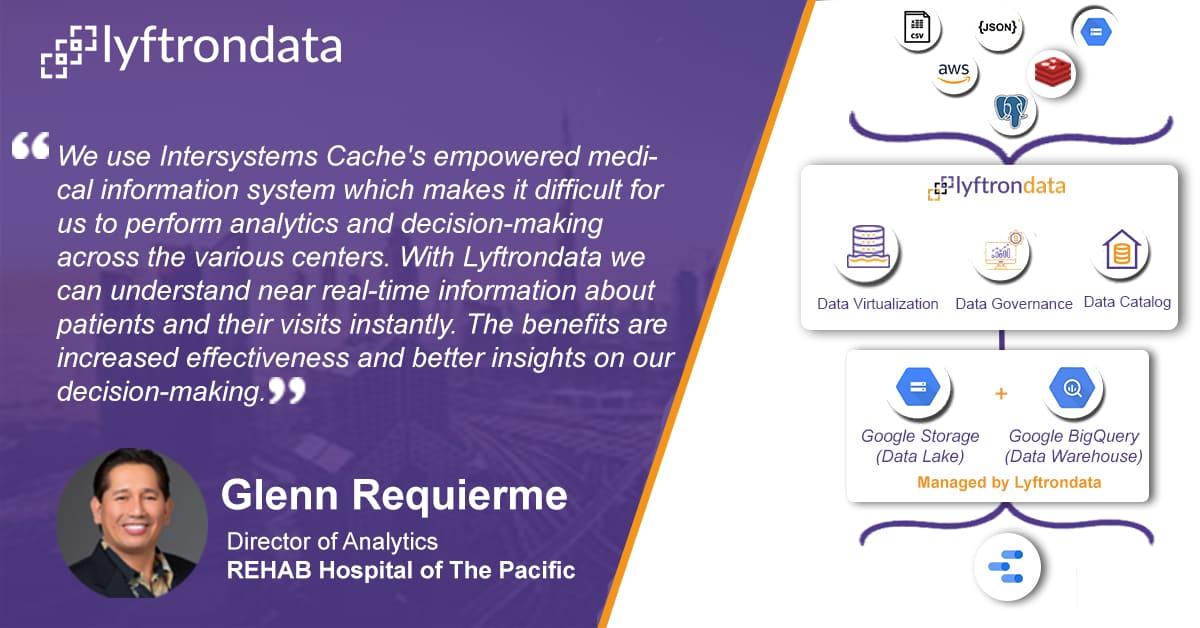200X Acceleration at
1/10th of the cost
Zero
maintenance
No credit card
required
Zero coding
infrastructure
Multi-level
security
Simplify Azure Storage integration in
4 simple steps
Create connections
between Azure Storage and targets.
Prepare pipeline
between Azure Storage and targets by selecting tables in bulk.
Create a workflow
and schedule it to kickstart the migration.
Share your data
with third-party platforms over API Hub

Why choose Lyftrondata for Azure Storage Integration?
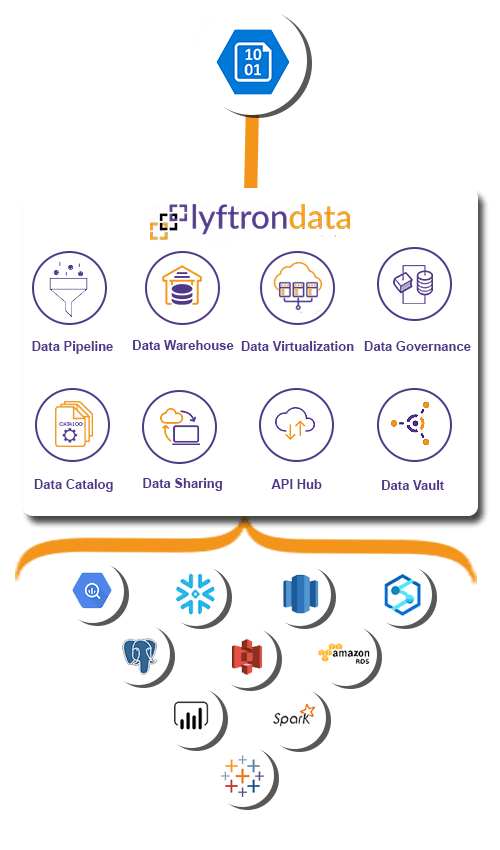

Simplicity
Build your Azure Storage pipeline and experience unparalleled data performance with zero training.

Robust Security
Load your Azure Storage data to targets with end-to-end encryption and security.

Accelerated ROI
Rely on the cost-effective environment to ensure your drive maximum ROI.

Customer's Metrics
Track the engagement of your customers across different channels like email, website, chat, and more.

Improved Productivity
Measure the performance of your team and highlight areas of improvement.

360-degree Customer View
Join different data touch points and deliver personalized customer experience.
Hassle-free Azure Storage integration to the platforms of your choice
Migrate your Azure Storage data to the leading cloud data warehouses, BI tools, databases or Machine Learning platforms without writing any code.
Hear how Lyftrondata helped accelerate the data journey of our customers
FAQs
What is Azure Storage?
Microsoft's proprietary globally distributed, multi-model database service "for managing data at planet-scale" was introduced in May 2017 as the Microsoft Azure Azure Storage Integration tool. Due to its ability to be scalable, horizontally scalable, and schema-neutral, it is frequently referred to as a NoSQL database.
What are the features of Azure Storage?
Global distribution of data: You can distribute globally using Azure Storage Integration.
Serverless architecture: With the Azure Storage Connectors platform you can leverage a serverless interface.
Multi-model support: Azure Storage Drivers software enables you to use multi-model support.
Throughput consistency guarantees: Consistency is assured with Azure Storage ETL.
What are the shortcomings of Azure Storage?
Subscription limit: There are certain limits for containers per subscription (API for Azure Storage) option within the Azure Storage Integration tool.
Impeded throughput: Throughput per container is limited with Azure Storage ETL.
Throughput Database restrictions: Maximum throughput per shared-throughput database in Azure Storage Connectors tool.
Storage constraint: Maximum total storage per account often fall short with the Azure Storage Drivers platform.
Make smarter decisions and grow your sales with Lyftrondata Azure Storage integration





